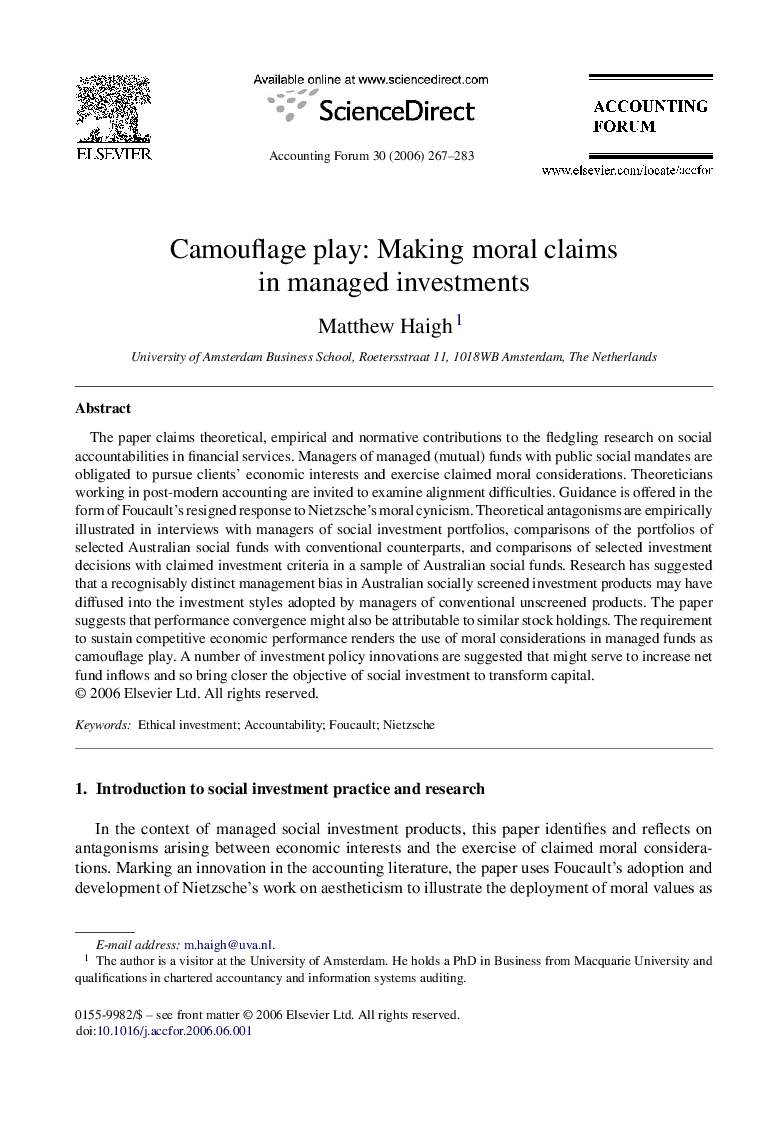| Article ID | Journal | Published Year | Pages | File Type |
|---|---|---|---|---|
| 1003912 | Accounting Forum | 2006 | 17 Pages |
The paper claims theoretical, empirical and normative contributions to the fledgling research on social accountabilities in financial services. Managers of managed (mutual) funds with public social mandates are obligated to pursue clients’ economic interests and exercise claimed moral considerations. Theoreticians working in post-modern accounting are invited to examine alignment difficulties. Guidance is offered in the form of Foucault's resigned response to Nietzsche's moral cynicism. Theoretical antagonisms are empirically illustrated in interviews with managers of social investment portfolios, comparisons of the portfolios of selected Australian social funds with conventional counterparts, and comparisons of selected investment decisions with claimed investment criteria in a sample of Australian social funds. Research has suggested that a recognisably distinct management bias in Australian socially screened investment products may have diffused into the investment styles adopted by managers of conventional unscreened products. The paper suggests that performance convergence might also be attributable to similar stock holdings. The requirement to sustain competitive economic performance renders the use of moral considerations in managed funds as camouflage play. A number of investment policy innovations are suggested that might serve to increase net fund inflows and so bring closer the objective of social investment to transform capital.
